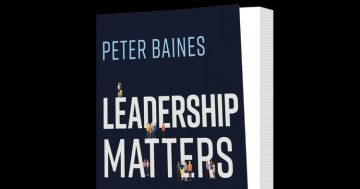Geraldine Huse says a fast changing world means that leaders must ensure that every member of their team is performing at their optimum level.
By Geraldine Huse*
 Inclusive leadership is the critical skill needed for success in today`s world.
Inclusive leadership is the critical skill needed for success in today`s world.
It is a crucial and powerful capability that gets the best out of a diverse organisation and of each individual.
We need this to navigate and succeed amidst the complex and fast changing web of interdependencies we deal with.
Today’s leaders need every player in their team performing at their peak, while the definition of ‘team’ should be broader than ever.
We have to realise that the interdependencies we rely on to achieve our goals, span many people.
Some we interact with daily and others occasionally, but even those rare interactions may be critical.
Inclusive leadership is not new at P&G. We understand that positive diversity measures are just statistics.
It is inclusion that truly changes the game, gets the full value out of each individual and creates the environment for them to contribute as authentic selves at their peak, bringing the collective value we need.
Having and sharing an authentic belief in diversity is the starting point of the journey to become a truly inclusive leader.
Nothing is more important to people than seeing their leader living these values.
Demonstrate your passion and belief in diversity with everyday inclusive interactions.
Engage personally in diversity initiatives and have direct involvement in diversity groups, affinity councils and so on.
Ensure you are being inclusive in tough situations and, most importantly, when things are going wrong.
People can feel most abandoned at times of stress. These situations are a true torture test for any leader.
The higher the risk and the stakes, the bigger the temptation to revert to the people and decisions you are most at ease with.
That’s when leaders need to make sure they lead by example and demonstrate passion for inclusive leadership through their attitudes and behaviour.
Show people you are there for them and wanting their input, especially when disruption is at its greatest. They will reward you.
Inclusive leadership needs to be fostered continuously.
With an authentic and demonstrable belief in diversity we can create an environment for giving and receiving feedback, whenever we see behaviour that is not inclusive.
It is our role as leaders to question the status quo and encourage everyone to do the same.
Staying still in today’s world is not an option.
Accessing diverse points of view is crucial in creating optimum strategies and plans.
An inclusive leader creates an environment where disagreement is viewed positively.
I have learned from experience that the more diverse the team, the more debate and disagreement we have, the better the outcome.
As leaders, we should create a culture in which the team can hear and understand other people’s points of views or ideas.
To nurture this culture, it is critical to ensure it is safe for people to dissent.
Leaders need to drive understanding that the value of someone’s ideas is not a function of seniority, share of voice or any diversity metric.
I have often seen the quiet person or the person with the most different point of view having the breakthrough idea, but all too often they go unheard.
The greatest enemies of constructive dissent are prejudice and bias, which hold our people back from contributing or having their contributions acted on.
Biases such as: “The individual with the higher status or length of experience must know better”, or “this needs a tough person to handle it”.
It is not enough to just be aware of these biases.
As leaders, we must act to ensure they do not lead to people not being listened to or poor decisions made, particularly in challenging circumstances.
Leaders need to include and embrace all points of view, encourage dissent, and intentionally explore and understand what is the best route forward.
Finally, Inclusive leadership is about collaborating with everyone who can help deliver the goals.
Not just with your direct team, but also with a variety of stakeholders within your organisation and external partners.
None of us is as smart as all of us together when it comes to finding the optimal way.
Listening to people, understanding and solving problems collectively, taking advantage of all the diverse experience — this is what makes an inclusive leader successful.
In today’s rapidly changing world amid powerful forces of disruption, leaders will find it impossible to be successful based only on how good they are as individuals.
It is how good they are at leveraging their whole teams that will determine if the organisations they lead will be able to succeed.
*Geraldine Huse is Chief Executive and Chair for P&G Central Europe, responsible for the company’s business and operations in nine markets and leading an organisation with more than 5,500 people. She can be contacted on LinkedIn.
This article first appeared on LinkedIn











